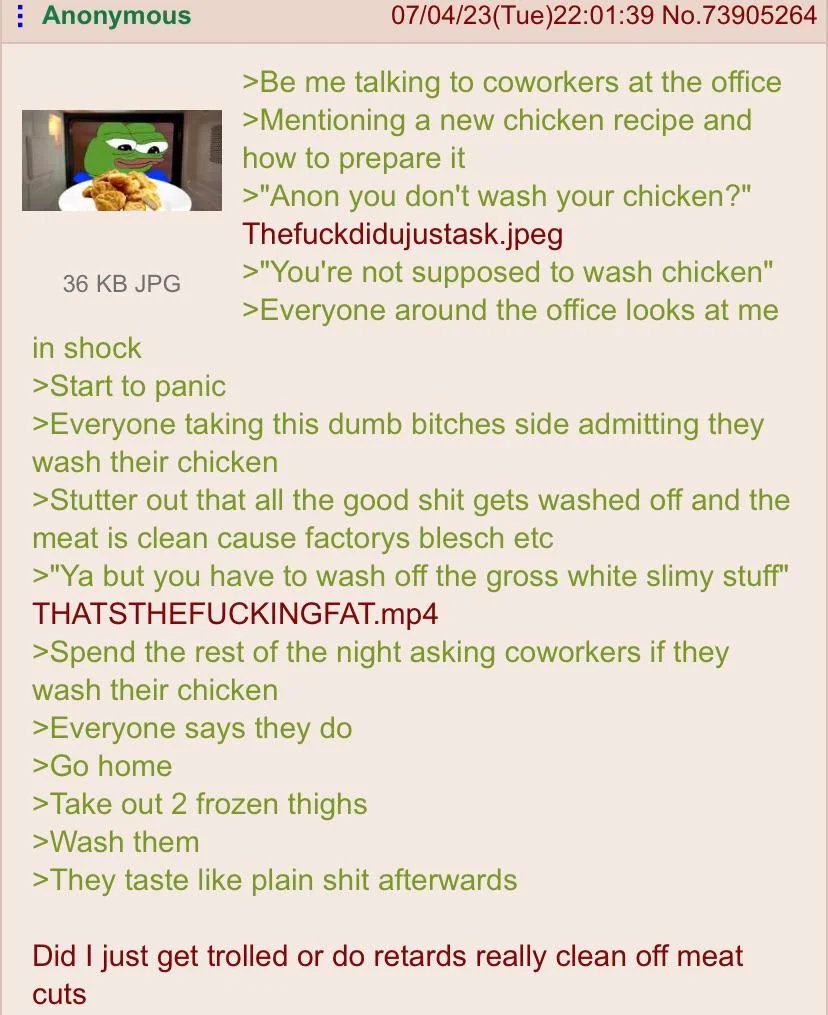this post was submitted on 05 Jan 2025
685 points (97.8% liked)
Greentext
4809 readers
1310 users here now
This is a place to share greentexts and witness the confounding life of Anon. If you're new to the Greentext community, think of it as a sort of zoo with Anon as the main attraction.
Be warned:
- Anon is often crazy.
- Anon is often depressed.
- Anon frequently shares thoughts that are immature, offensive, or incomprehensible.
If you find yourself getting angry (or god forbid, agreeing) with something Anon has said, you might be doing it wrong.
founded 1 year ago
MODERATORS
you are viewing a single comment's thread
view the rest of the comments
view the rest of the comments

I'm confused what they think they're washing off. If you don't believe the cooking kills the germs then you're not cooking it right (or are confused). If you think it's something that won't come off with cooking like dirt or dust, then, ew, why are you getting chicken from somewhere that gets it covered in dirt or dust?
A LOT of kitchen practices in families are passed-down traditions, with a lot of people not really knowing why they do the things they do.
My Filipino family-in-law washes their cuts of meat, which yeah is entirely unnecessary and I always wondered why they do it, then I traveled to the Philippines and saw the town where they lived, and most of the local butchers hang fresh cuts of meat up on hooks, uncovered, right next to busy roads and sidewalks.
I genuinely don't know how everyone there hasn't died of acute food poisoning from the unrefrigerated meats in high heat and humidity, but they at least like to wash off the road grime and dust.
It can also help tenderize the meat (via vinegar or lemon/lime); I tend to find that, when "nondeveloped" countries talk about washing their meat, it means in a vinegar/citrus solution while "developed" countries quite literally mean just plain water.